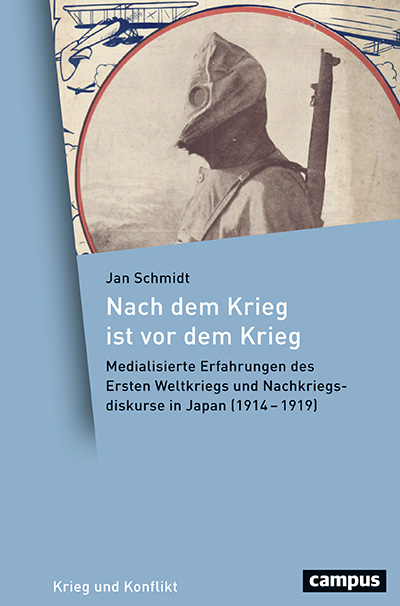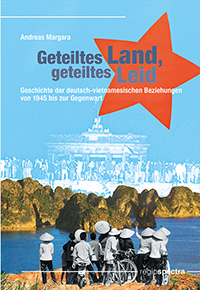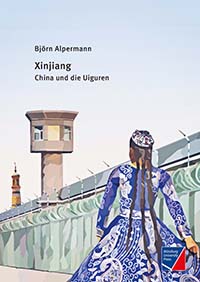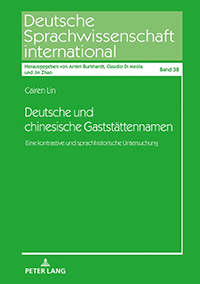IBP 2023 German Language Edition
Total number of books submitted: 18
Organizing Entity: Centre for Asian and Transcultural Studies (CATS)
Secretary: Christiane Brosius
Acting Secretary: Corinna Mascherin
Reading Committee Members: Hans Harder, Hans-Martin Krämer and Verena Blechinger-Talcott
Sponsor of the IBP 2023 German Edition: Centre for Asian and Transcultural Studies (CATS)

IBP 2023 German Language Winner
AUTHOR: Jan Schmidt
TITLE: Nach dem Krieg ist vor dem Krieg: Medialisierte Erfahrungen des Ersten Weltkriegs und Nachkriegsdiskurse in Japan (1914–1919) (After the War is Before the War: Medialized Experiences of the World War I and Postwar Discourses in Japan (1914–1919))
PUBLISHER: Campus Verlag, 2021
Did the experience of World War I open a new chapter not only in European history, but also in Japan? Research on WWI has almost entirely ignored Japan. Similarly, historians of Japan have attributed only limited influence on Japanese modernity to the experience of this war. This book sets out to challenge these conventional understandings and argues that WWI did have a significant impact on Japanese society at large. Through analysis of mass media, the author carefully fleshes out the ways in which the war was widely received in Japanese society. He then traces interpretations and popular discourses about what the war experience meant for the country’s future. Furthermore, he analyzes how government bureaucracy and military leadership leveraged these diverse popular discourses to develop and promote the agenda for Japanese politics, both domestically and internationally. He shows that such reflections also led to a re-evaluation of ongoing social discourses. Jan Schmidt’s excellent study is thoroughly researched, including newly discovered archival material. His work, amongst other arguments, demonstrates that understanding the role of learning from global experiences requires going beyond conventional elite and intellectual history.

IBP 2023 German Language Shortlist
 AUTHOR: Andreas Margara
AUTHOR: Andreas Margara
TITLE: Geteiltes Land, geteiltes Leid: Geschichte der deutsch-vietnamesischen Beziehungen von 1945 bis zur Gegenwart
(Divided Country, Shared Suffering: A History of German-Vietnamese Relations from 1945 to the Present)
PUBLISHER: regiospectra, 2022
In the title of his book, Andreas Margara plays with the German word “geteilt”, which can mean “divided” and “shared”. Not only were Vietnam and Germany both divided, but they also share a lot of history, which is particularly true for East Germany. Margara highlights the ideological ties, but also the movement of people between the German Democratic Republic and Communist Vietnam both during the Vietnam War (military aid) and since 1973 (contract workers migrating to the GDR). Through tapping the rich resources of German state archives, Margara is also able to diligently reconstruct official contacts and the pro-Vietnamese projections of left-wing protest groups on the West German side. A brief chapter on the most recent history of the German-Vietnamese relations since 1990 rounds off this eminently readable volume.
 AUTHOR: Björn Alpermann
AUTHOR: Björn Alpermann
TITLE: Xinjiang: China und die Uiguren
(Xinjiang: China and the Uyghurs)
PUBLISHER: Würzburg University Press, 2021
In the only German-language book on the Northwestern Chinese region of Xinjiang, Björn Alpermann carefully surveys the history and socio-economic situation of its inhabitants, i.e. first and foremost the Muslim Uyghur minority. Although his interest lies mainly with the current conflict between inhabitants of the region and the central government, this book also satisfies the reader’s curiosity concerning questions about ethnic identity or the cultural roots of the conflict. The work is especially commendable for its even-handedness: Alpermann refuses to subscribe to the one-sided anti-Chinese discourse of exile Uyghurs, but at the same time he is critical of the Chinese government’s labeling of acts of resistance as “terrorism” and especially of recent Chinese policies in the region, which, after careful deliberation, he does not hesitate to characterize as “cultural genocide”.
 AUTHOR: Cairen Lin
AUTHOR: Cairen Lin
TITLE: Deutsche und chinesische Gaststättennamen: Eine kontrastive und sprachhistorische Untersuchung
(German and Chinese Names of Restaurants: A Contrastive Language-historical Study)
PUBLISHER: Peter Lang, 2022
The rather sober title of this book, a doctoral thesis that came out of German Studies at Magdeburg University, conceals a thorough historical and comparative study of onomastics between China and Germany. The author furnishes a solid introduction to the study of names and naming in general and the linguistic, functional and legal aspects of restaurant names in particular. Her corpus of appellations relies on a great variety of sources, such as historical lists of the names of buildings in 17th century Magdeburg, mentions of restaurant names in a Tang-dynasty collection of novels, or communist 20th century names. Lin analyses her material in morphological, stylistic and semantic terms, and arrives at a set of cultural differences, amongst which the Chinese tendency to stress wishes, virtues and moral values in restaurant names sticks out.
 AUTHOR: Claudius Torp
AUTHOR: Claudius Torp
TITLE: Klavierwelten: Aufstieg und Verwandlung einer europäischen Kultur, 1830–1940
(Piano Worlds: Rise and Transformation of a European Cultural Practice)
PUBLISHER: Campus Verlag, 2022
This book traces the transnational history of an object – the piano – and its surrounding cultural practices in the framework of a global history of music. The author sketches the earlier European history of the piano up to the mid-19th century and then sets out to track its transmission to other climes. The case studies supply much fascinating material on the piano’s “tropicalisation” through Christian missions, its appropriation for countercultural music in North America, or its position in divided, Apartheid South Africa. Torp also has a substantial and excellent chapter on the way the piano entered Japan in Meiji times and the central role it came to play within the reception of Western musical traditions. Sophisticated and well-written, Torp’s book is an excellent example of how a historian not specialized in Asian cultures or languages can work out a reliable account and integrate Japan with his other case studies into an impressive whole.